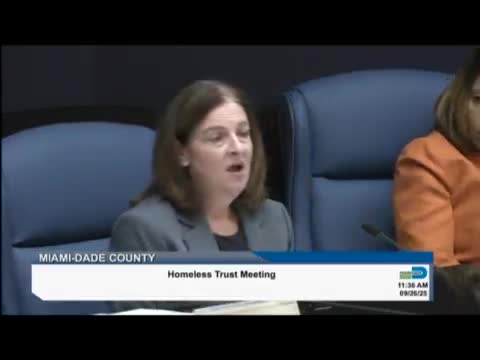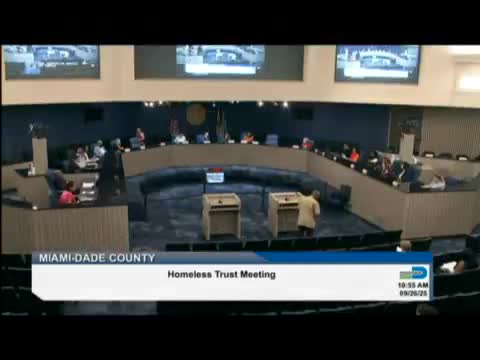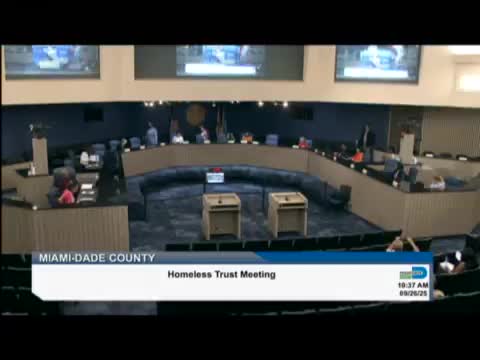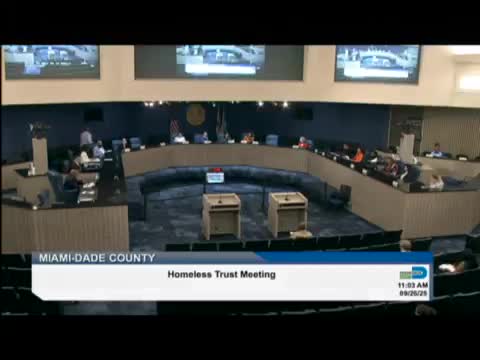Article not found
This article is no longer available. But don't worry—we've gathered other articles that discuss the same topic.

Homeless Trust warns HUD cap could force shifts from permanent supportive housing; mobile home park evictions prompt near‑term outreach plans

Homeless Trust seeks $2 million for housing acquisition, urges continued state grants and TANF flexibility

Miami‑Dade summer homeless count falls overall but unsheltered numbers rise; navigation center delayed until year‑end

